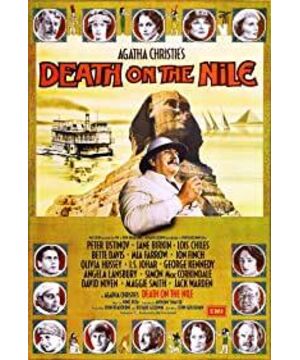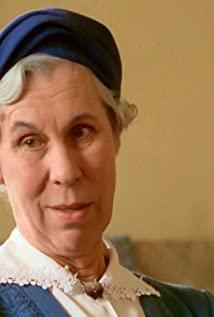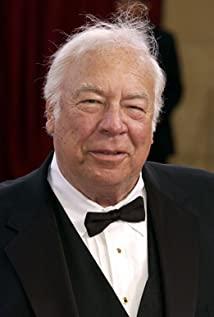Maybe you've seen a lot of dog love triangles, but few stories are as bloody as Medea's experience.
Medea is the classic "bad girl" image in Greek mythology. She's a princess, born with strong spells, smart and alert, but unfortunately she falls in love with Jason - a prince who depends on her for help and cares for everything. In order to be with Jason, Medea betrayed her motherland, killed her younger brother, and wandered in a foreign land; and when Jason abandoned her to start a new love, she killed the third person and her father, as well as herself and Iraq. A Song's two sons. She did not take Jason's life, the purpose was to make the latter feel the remorse of losing the flesh and blood of his close relatives, "heartache like a knife".
This cruel story was written into the play "Medea" by the ancient Greek writer Euripides, which became the earliest work to promote "feminism" in the history of Western literature. Medea in the play loses her husband, which is almost equal to losing everything: identity, status, property, dignity... Through Medea's mouth, Euripides, who sympathized with women, accused the patriarchal society at that time:
"Among all sensible and spiritual creatures, we women are the most unfortunate. First of all, we have to buy a husband (a dowry asset) with a lot of money, and he will become our master; however, if we do not buy Husband, that's even more tragic... I'd rather fight three battles with a shield than have a baby once."
If it only stops at the accusation, Medea is no different from the abandoned woman in "Rogue". But her character is very strong: "None of them can break my heart for nothing without getting revenge!" Then there was the slaughter that followed. The child-killing made Medea, a mother, also feel pain. She knew that the world would despise her from now on, but she still did not change her decision.
For Medea's emotions, I can't describe it with simple love and hate. When I read the script for the first time, I was shocked. Euripides is to let the reader hold a wounded and insulted heart in his hand and look closely, which is unforgettable for a long time. This is the fascinating part of Greek tragedy.
A few days ago, I watched the movie "The Massacre on the Nile". The familiar configuration of "love triangle + revenge" gave me the illusion of "I have seen this episode" in the first half of the movie :
The heroine Jackie is a good friend of the wealthy girl Lynette. Jackie introduces her fiancé Simon to work at Lynette's manor. As a result, Lynette is loved and eventually married to Simon, and the two go to Egypt for their honeymoon. An angry Jackie followed her ex-boyfriend and ex-girlfriend to Egypt, harassing and pestering them, and eventually led to a tragedy on a Nile cruise ship.
At first glance, except for having no children, Jackie and Medea in the movie received almost the same script : both of them are very assertive, and they both have skills that make men feel threatened-Medea can spell, Jay. Ji is proficient in marksmanship; Medea's husband Jason said that he abandoned her to marry the princess because he wanted money and power; Jackie's fiancé also said the same thing. So marry Lynette.
Even both women say in unison that they want revenge, but the second half of the movie slides to a very different ending. Although Jackie shot Simon, in a sense it was actually a sacrifice for love.
There is an interesting plot contrast here, which may be one of the reasons for the different endings: In "Medea", Jason repeatedly reiterates to Medea that he did not hate her, but was fed up with poverty :
"The most important thing is that we have to live like this and not be too poor... I didn't marry this princess for love, but to help you and have some noble brothers who are brothers with your two sons. Children, come and protect our family."
To this Medea only replied: "I don't want that kind of painful rich life and that kind of stabbing happiness."
In "Murder on the Nile", when Jackie learns that her fiancé, Simon, betrayed her for money, she chooses to forgive him instead. When Simon attempts to murder his new wife, Lynette, to gain an inheritance, Jackie spares no effort to help.
In Medea, the oath of love is unbreakable, and the desire for wealth cannot be a reason to abandon marriage. With Jackie, greed for money can be understood and forgiven, even if it breaks the engagement.
Comparing the two, you will understand the intention of the original author of the film, Agatha Christie - what she wants to describe is love in the 1930s. The power of money at this time is stronger than at any time in the past. In ancient Greece, family background was a priority, and Medea was a descendant of the gods, and she was proud of it; in industrial society, gods are dead, and dignity and love have also given way to money.
In order to help Simon kill his wife and cover up the crime, Jackie mercilessly kills two innocent people on the cruise ship. When all the crimes are revealed, she decisively shoots and kills Simon.
I was surprised at that moment, but then I felt that this kind of plot arrangement was inevitable: for love, Jackie can do anything, and killing her lover is the last protection for him.
Medea and Jackie have different endings, but in a way they both end the same way. When there is no upper limit to love, there is also no upper limit to hate. They are all women who regard love as everything and are finally devoured by love.
The story of "love triangle + revenge" is not over yet. Last year's hit "Deadly Woman" brought to the stage "Why women kill", an ancient topic that has lasted for more than 2,000 years since Medea. It is still a familiar formula: husband cheating, third party, self-esteem injury, revenge, money... But there are different loves in different times, and modern women can play a completely different ending when they get Medea's script. .
Among the three heroines of "Deadly Woman", Beth's story is closer to the public's life experience, and it is also the most similar to Medea's story prototype. Beth and her husband moved to a new house, and when they didn't know each other, they found out that her husband was cheating. Medea was also abandoned by her husband when she was wandering in a foreign land. Once divorced, they both face the fate of deportation.
But Beth and Medea are a little different, Medea is furious and powerful, while Beth's anger and power are accumulated little by little. In the play, Beth's intellectual and emotional changes are very obvious. She constantly examines the meaning of love, especially when she becomes friends with a third party, she remembers the ideals she had when she was young. Her sense of self began to awaken.
And once self-awareness is established, love is no longer everything for women , and self-destroying tragedies like Medea and Jackie will never happen again.
To me, Beth's story is an amazing comedy, and the best part is that she ends up living with a third person and raising children.
Jason, the unscrupulous husband in "Medea" once said: "May human beings have another way to give birth, then women can not exist, and we men will not suffer." And Beth's ending is undoubtedly more than 2,000 years old. The former Jason was slapped in the face, if those patriarchal dregs didn't exist, women could really live wonderfully.
In the past revenge of love triangles, the end of the third party was very miserable. And in this show, they all have a perfect ending - an ending that can only be written in our time. The song of Medea's revenge spread to Beth, and a new chapter was launched. What kind of variation happened after that is another story.
View more about Death on the Nile reviews











